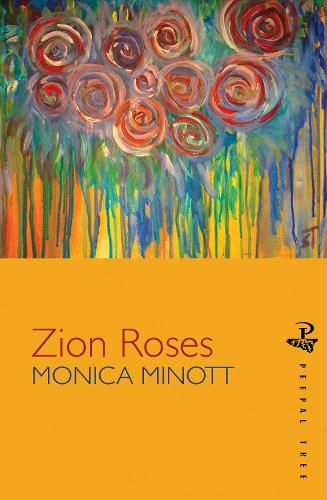Readings Newsletter
Become a Readings Member to make your shopping experience even easier.
Sign in or sign up for free!
You’re not far away from qualifying for FREE standard shipping within Australia
You’ve qualified for FREE standard shipping within Australia
The cart is loading…






In Zion Roses, her second collection, Monica Minott’s poems grasp the reader’s attention with a voice that is distinctively personal, both taut and musical–and tender and muscular when the occasion demands. Her language moves seamlessly and always appropriately between standard and Jamaican patwa, a reflection of a vision that encompasses a Black modernity still very much in touch with its aphoristic folk roots, where the ancestral meets Skype or a Jonkonnu band is stuck in a Kingston traffic jam. It is possible to see Minott’s poems as being in a constant dialogue between four quadrants of engagement: with history, with landscape, with personal and family experience, and with the worlds of literature, music, and art. Minott’s sense of history is deeply informed by a knowledge of the brutalities of commercial empire and of slavery and Black people’s struggles against injustice and for selfhood. There is scarcely a poem that does not have some precisely described sense of the materiality of its circumstance and the interactions between the physical world and human feelings. You sense that what sustains a certain bravery of self-exposure and of risk is a sense of belonging to family.
$9.00 standard shipping within Australia
FREE standard shipping within Australia for orders over $100.00
Express & International shipping calculated at checkout
In Zion Roses, her second collection, Monica Minott’s poems grasp the reader’s attention with a voice that is distinctively personal, both taut and musical–and tender and muscular when the occasion demands. Her language moves seamlessly and always appropriately between standard and Jamaican patwa, a reflection of a vision that encompasses a Black modernity still very much in touch with its aphoristic folk roots, where the ancestral meets Skype or a Jonkonnu band is stuck in a Kingston traffic jam. It is possible to see Minott’s poems as being in a constant dialogue between four quadrants of engagement: with history, with landscape, with personal and family experience, and with the worlds of literature, music, and art. Minott’s sense of history is deeply informed by a knowledge of the brutalities of commercial empire and of slavery and Black people’s struggles against injustice and for selfhood. There is scarcely a poem that does not have some precisely described sense of the materiality of its circumstance and the interactions between the physical world and human feelings. You sense that what sustains a certain bravery of self-exposure and of risk is a sense of belonging to family.